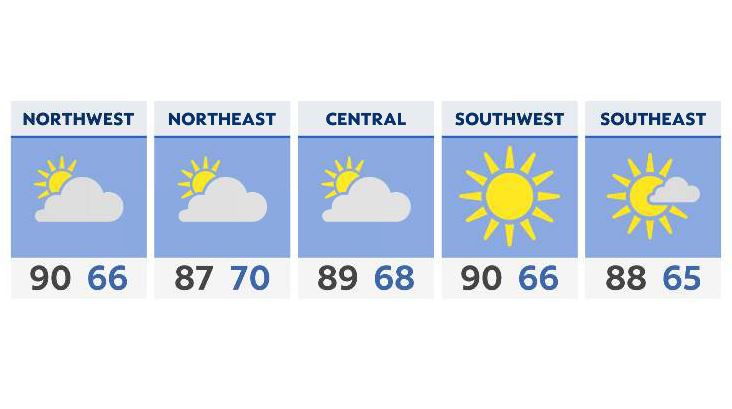OHIO — The nation is remembering the 20th anniversary of 9/11.
The terrorist attacks claimed the lives of nearly 3,000 people.
The tragedy changed life as we knew it across the country and Muslim Americans recall a distinct shift in attitudes toward them.
Islamophobia grew exponentially and hate crimes against Muslim ensued, including right here in Ohio.
In some ways, there has been measurable progress for Muslim Americans as we reflect on the last 20 years.
The Muslim population has grown to roughly 1.1% and the number of mosques has doubled in the United States since 2000, according to Pew Research Center.
Muslim Americans have also since gained formal representation in Congress.
But Islamophobia existed prior to the 9/11 terrorist attacks and it still persists today.
Spectrum News talked with the president of the Islamic Center of Cleveland and his family to gain perspective on where things stand 20 years later.
It’s the first day of kindergarten for 5-year-old Tariq.
Parents Ziad Tayeh and Sihar Razick picked him up from school.
Tayeh is a lawyer and Razick is a paralegal.
They’re also Muslim Americans.
Religion is an important part of their everyday life, which includes praying five times a day. Instilling Islamic values in their son is a top priority.
“The most important thing that I will ever leave my son,” said Tayeh.
Tariq studies the Quran daily.
“Islam means peace,” said Razick.
But experts say Islamophobia or the irrational fear and discrimination against Muslims is real and it heightened dramatically after 9/11.
There was a 1,600% increase in anti-Muslim hate crime incidents in 2001, according to the FBI.
“A couple of days after Sept. 11th our mosque was attacked. So, we attended the Islamic Center of Cleveland, which is located in Parma, Ohio, and that was pretty much the only major mosque in the area at the time,” said Tayeh.
The 9/11 terrorist attacks remain a moment in our country’s history that many vividly remembers. They remember where they were and what they were doing when they heard the horrific news.
“I remember watching the news with my mom and dad. And I remember looking over at my dad with his hands over his face like ‘Oh my God,'” said Razick.
Razick said everything changed after it became clear terrorist group al-Qaeda was behind the attacks.
“They didn’t make it like mandatory, but they pretty much said for the Muslims to kind of stay at home,” said Razick.
Tayeh was 18 at the time.
He enlisted in the U.S. Army just a few months before 9/11 changed America forever.
“And then the second plane crashed into the second tower. And at that point we knew this was an act of war,” said Tayeh.
Although a few hateful incidents stick out in his memory, Tayeh said there has also been an abundance of support.
Through personal interactions and relationships, he is proud that he’s been able to shift some mindsets on what it truly means to be a Muslim in America.
“They realized that they shouldn’t judge an entire people by the acts of a couple of extremists,” said Tayeh.
But he said it’s an uphill battle and a lot more work needs to be done to combat Islamophobia.
“I think it’s become worse, actually. I think a lot of the voices that you hear out there are much louder than they were previously,” said Tayeh.
Ultimately, this family is hopeful for a better future and believes we should focus more on what makes us the same instead of what makes us different.
“That’s what the United States are. Let’s be united,” said Razick.
“Be friends with a Muslim and you’ll come to realize that we’re not all that much different,” said Tayeh.
This family said the most important thing we can do is meet Muslims, befriend them and ask questions so we can all have a better understanding.
They told Spectrum News a lot of the issue lies in ignorance and negative stereotypes.
The Council on American-Islamic Relations said there was a 20% decrease in hate crimes reported in 2020, but the organization believes that is in part due to COVID-19 lockdowns.
Between 2016 and 2020, about 60% of Muslim Americans reported experiencing religious discrimination, according to the Institute for Social Policy and Understanding.
So, it’s clear challenges remain for Muslims in America even 20 years later.




